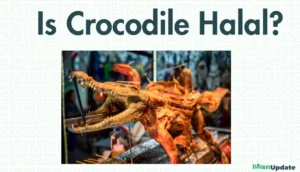Is Beef Halal For Muslims To Eat? Complete Guide

In Islam, whether beef is halal (allowed) depends on how the animal is treated and how the meat is prepared. For beef to be halal, it must follow certain rules from Islamic law.
The act of slaughtering animals including cows for consumption must follow strict guidelines that ensure humane treatment and ethical responsibility towards the animal.
These guidelines are part of a divine obligation, and failure to adhere to them renders the meat unlawful (haram) for consumption. The consensus among Islamic scholars underscores the significance of following these religious principles in order to maintain purity and compassion in food practices.
Is Beef Halal?
Yes, Beef is considered halal for Muslims if it is slaughtered in accordance with Islamic guidelines. These guidelines require that the slaughterer be a Muslim, Jew, or Christian, and that Allah’s name is mentioned during the process. The animal’s throat, esophagus, and jugular veins must be cut swiftly to ensure the blood is fully drained.
Additionally, the animal should be treated humanely, and a sharp tool should be used to minimize suffering. It is also essential that the beef is free from any haram substances, such as pork or alcohol. When these conditions are met, the beef is permissible for consumption in Islam.
Conditions for Proper Slaughter
Islam prescribes specific conditions for the slaughterer, the animal being slaughtered, and the tool used in the act of slaughter. These conditions ensure the process is humane, ethical, and permissible according to Islamic law.
One: Conditions Applicable to the Slaughterer
- The slaughterer must be of sound mind and a believer in a divine religion:
- The individual performing the slaughter, whether man or woman, Muslim or a follower of another divine religion (Jews and Christians), must be sane and possess sound judgment. This requirement ensures that the act is carried out with responsibility and awareness.
- Allah says, after listing the animals that are forbidden:
“Except that which you may have slaughtered when it was still alive”
(Quran 5:3)
Regarding the People of the Book, Allah also states:
“The food of those who were given the Scripture is lawful for you”
(Quran 5:5) - Ibn Abbas (may Allah be pleased with him) explained that the “food” referred to in this verse is their slaughtered animals. It is not permissible, however, to consume the animals slaughtered by other non-believers, mad individuals, intoxicated persons, or young children.
- The intention behind the slaughter must be to dedicate it solely to Allah:
- The slaughterer must not dedicate the act to anyone other than Allah. If the animal is slaughtered in the name of an idol, a human, or even a Prophet (peace be upon him), it becomes forbidden to eat.
- Allah emphasizes this in the Quran:
“And [forbidden is] that which has been dedicated to other than Allah.”
(Quran 16:115) - When these two conditions are met, the meat of the slaughtered animal becomes lawful (halal) to consume, irrespective of the slaughterer’s gender, age, or social status.
Two: Conditions Applicable to the Animal
- The proper cutting of the animal’s throat:
- To ensure the animal’s quick death, the slaughter must involve cutting the throat, esophagus, and the two jugular veins. This method is designed to swiftly drain the blood and reduce suffering.
- Rafi’ ibn Khadij (may Allah be pleased with him) reports that the Prophet (peace be upon him) said:
“When the animal’s blood has been profusely shed and Allah’s name is mentioned at the time of slaughter, then eat of it, but do not use teeth and claws.”
(Bukhari 2,488; Muslim 1,968)
- The mention of Allah’s name (Tasmiyah) is obligatory:
- Before slaughtering the animal, the name of Allah must be pronounced by saying “Bismillah” (In the name of Allah). This action signifies that the slaughter is done in accordance with God’s command and for His sake.
- Allah warns in the Quran:
“And do not eat of that upon which the name of Allah has not been mentioned, for indeed, it is grave disobedience.”
(Quran 6:121) - It is also recommended to say “Allahu Akbar” (Allah is the Greatest) in addition to the Tasmiyah, as the Prophet (peace be upon him) is reported to have done.
Three: Conditions Applicable to the Tool
- The slaughtering tool must be sharp:
- A sharp blade made of iron, brass, or stone should be used to slaughter the animal. The sharpness of the blade ensures a swift and clean cut, which minimizes the animal’s suffering. The tool should be sharp enough to sever the throat and jugular veins quickly, allowing the blood to pour out.
- The Prophet (peace be upon him) advised:
“When you slaughter, slaughter well, and let one of you sharpen his blade and spare suffering to the animal.”
(Muslim) - It is forbidden to use a tool made of bone, teeth, or claws, as these are not capable of providing a clean, swift cut.
Things to Avoid During Slaughter
- Using a blunt blade:
- Slaughtering with a dull blade is reprehensible because it unnecessarily prolongs the animal’s suffering. Ibn Umar (may Allah be pleased with him) reported that the Prophet (peace be upon him) said:
“Sharpen your blades and keep them unseen by the animals.”
(Ahmad 5,864; Ibn Majah 3,172)
- Skinning or breaking the animal’s neck before it has fully died:
- The animal should be allowed to die completely before any further handling, such as skinning or breaking the neck, is performed. Umar (may Allah be pleased with him) said:
“Do not be hasty before the animal has died.”
(Al-Bayhaqi, Al-Sunan Al-Kubra, vol. 9, p. 278)
- Slaughtering animals in view of one another:
- It is considered cruel to slaughter an animal in the sight of other animals. Animals should be shielded from witnessing the slaughter to avoid unnecessary distress.
- Sharpening the blade in front of the animal:
- It is reprehensible to sharpen the blade while the animal is watching, as it causes fear and distress. The sharpening should be done away from the animal to maintain its peace of mind.
Slaughter by Followers of Other Religions
The animals slaughtered by Jews and Christians are lawful for Muslims to eat. Allah says:
“The food of those who were given the Scriptures before you is lawful to you.”
(Quran 5:5)
All Muslim scholars agree on this point. Both Jews and Christians follow the principle of dedicating their slaughter to God alone and avoid eating carrion, making their slaughter permissible for Muslims.
This differs from idolaters, atheists, and those who associate partners with Allah, whose slaughtered animals are forbidden to Muslims. Similarly, animals dedicated to shrines or other non-divine entities are not permissible.
Conclusion
Islamic guidelines for slaughter are not only about making the meat lawful (halal) but also about ensuring that the process is carried out with care, compassion, and responsibility.
These principles reflect the broader ethical framework in Islam, emphasizing humane treatment, respect for life, and a deep sense of gratitude to Allah. Following these guidelines ensures that the act of slaughter remains a religious duty that honors both the Creator and His creation.






